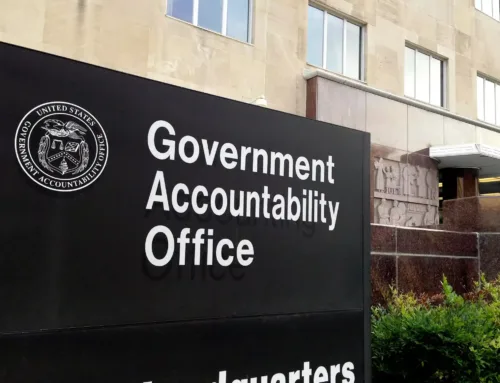This past year isn't the first time that the Department of Defense has been criticized for lack of oversight for Halliburton's wartime contracts. And, it's not too surprising to learn that in 1966 President Johnson's administration was criticized for not adequately auditing a current Halliburton subsidiary's contract for base construction in Vietnam. However, it might come to a shock to you that the Illinois lawmaker who trashed that contract on the House floor was none other than current Secretary of Defense Donald Rumsfeld.
After years of hearing about government waste, fraud and abuse, many American's have become convinced that the private sector is capable of doing the government's job at a higher level of quality and for less money. But, a recent expose in Mother Jones magazine offers damning information on how out of control the government's love affair with outsourcing has become, and a sense for how badly taxpayers are being taken.
Some of the most glaring examples of wasteful contracts have been made possible by recent rules changes that purported to cut red tape, but really just make it easier to award contracts without adequate competition. These changes allow a contract with only one bidder to be considered “competitive,” establish new categories of products that require no competitive bidding, and enable agencies to award new project contracts to an existing government contractor without getting other bids. As a result, between 1996 and 2002, total federal contracts increased from $186 billion to $265 billion. In 2002, $138 billion in contracts, or close to 52% of the total, were awarded without full competition – up from less than 41% in 1996.
No one can be sure how much more this is costing taxpayers, but some anecdotes suggest that we're getting taken to the cleaners:
- A contract with no fixed price to help the Transportation Security Administration recruit and train airport screeners exploded from $100 million to $700 million.
- A 2000 Energy Department contract to process workers compensation claims for employees at US nuclear weapons labs went to a company that had never before processed a health claim. After 3 years, the company had processed only 81 of 20,000 claims, while at the same time similar program at the Labor Department churned through 94% of close to 36,000 claims.
- In 2001, the Navy awarded a contract to manufacture rubber barriers for harbors to a company whose previous government contracting experience was for computer maintenance at the Air Force. The information technology firm essentially “flipped” the contract, awarding a no-bid subcontract to another company and walking away with a $2.6 million “finders fee.”
The potential for contractor abuse is compounded by the fact that the government's ability to oversee contracts has become woefully inadequate. During the 1990s, the number of federal buyers, auditors, and contract managers was cut almost in half, including 230,000 employees at the Defense Department, which awards close to two-thirds of our federal contracts. A GAO report in 2002 found that 90% of the contract and procurement employees at the Department of Housing and Urban Development didn't meet federal training requirements. The epitome of this situation is the fact that Defense Contract Auditing Agency hasn't hired one new auditor to work on the additional $20 billion worth of Iraq reconstruction contracts that it plans to audit. How will they handle the extra work? They plan to hire a contractor to do it for them.
Make no bones about it; government outsources is a tool that's here to stay. From our standpoint, there are instances when outsourcing can be cost efficient. However, in the absence of proper oversight and accountability, federal contractors could bring government waste, fraud, and abuse to new heights.









